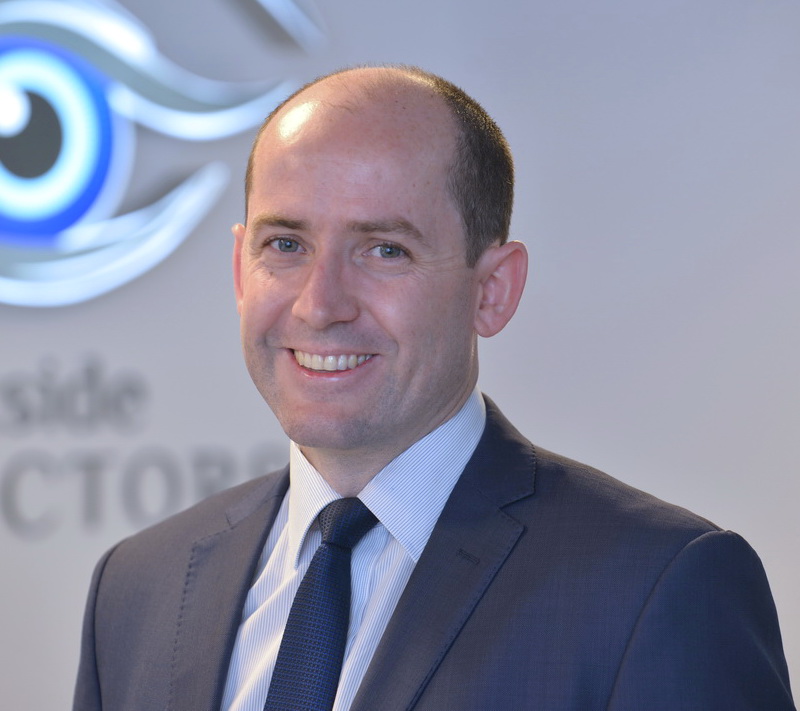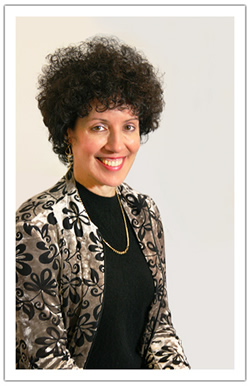Best Ophthalmologist in Brisbane

Dr Sunil Warrier
Ophthalmologist
Dr. Graham Hay-Smith
Ophthalmologist
Ophthalmologist (Eye Specialist) and has 3 practices located in Caboolture, North Lakes, Redcliffe.

Dr Abhishek Sharma
Ophthalmologist
office and the latest investigations, laser and injection facilities at two locations across Brisbane: South Brisbane and Clayfield. He operates on private patients at the advanced South Bank Day Hospital and St Andrews War Memorial Hospital. Dr abhishek sharma is highly experienced ophthalmologist south brisbane.

Dr Mark Donaldson
Ophthalmologist
Class Honors in Medicine & Surgery in 1996. His house officer training was completed at the Princess Alexandra and Royal Brisbane Hospitals. In 2000 he was awarded the Cedric Cohen medal and the John Parr Prize for the highest score in Australia and New Zealand for the Part I entrance examination for the Royal Australian & New Zealand College of Ophthalmologists.

Dr Cameron McLintock
Ophthalmologist
in Cataract Surgery, Refractive Surgery and Corneal transplantation. He is committed to patient-focused care and providing his patients with international standard, leading-edge treatments available for their eye health.

Dr Lawrence Lee
Ophthalmologist
Wickham Terrace, Brisbane. A/Prof Lee has expertise in medical and surgical retinal diseases, with particular interests in the treatment of macular degeneration, diabetic retinopathy, retinal detachment and eye trauma.

Dr. Lindsay McGrath
Ophthalmologist
and has over 15 years experience in this field. She has a strong relationship with Optometrists, and fosters shared care relationships between doctors and allied health – having practised as an Optometrist prior to pursuing medicine, and having previously served several years on the board of Optometry Australia (Queensland & Northern Territory division).

Dr. Mark Dal Pra
Ophthalmologist
experience. He is a comprehensive ophthalmologist who deals with a wide range of eye diseases including cataract, glaucoma, macular degeneration and diabetic eye disease. He has a special interest in cataract surgery with great experience in performing these surgeries.

Dr. Katherine Smallcombe
Ophthalmologist
relationships based on trust, open communication and respect. She was raised in Brisbane, attended Brisbane State High School and graduated with Honours from the University of Queensland in 1999 with a Bachelor of Medicine and Bachelor of Surgery.

Dr Diana Conrad
Ophthalmologist
Medal. She is specialised in pediatric ophthalmologist brisbane southside. She undertook Ophthalmology training in Brisbane and at the completion of her training was awarded a fellowship to undertake training at Moorfields Eye Hospital in London. Subsequently, she was awarded the Cecilia Vaughan Fellowship to study at the University of California in San Francisco. Dr Diana Conrad is best paediatric ophthalmologist brisbane.
When it comes to maintaining optimal eye health, finding the best ophthalmologist in Brisbane is essential. Ophthalmologists are medical doctors specializing in diagnosing and treating eye diseases, performing eye surgery, and managing various visual disorders. Brisbane offers a range of highly skilled ophthalmologists who provide comprehensive care to ensure your eyes stay healthy and your vision remains sharp.
Why Choose an Ophthalmologist in Brisbane?
Ophthalmologists listed on Doctor to You in Brisbane are known for their expertise in managing a wide range of eye conditions, from routine exams to advanced surgical procedures. Whether you’re facing vision problems, recovering from eye injuries, or dealing with chronic eye diseases, the top ophthalmologists featured on Doctor to You in Brisbane provide personalized care tailored to your needs. Utilizing the latest technology and techniques, these specialists ensure you receive top-quality eye care to help you achieve and maintain optimal vision.
Services Offered by Ophthalmologists in Brisbane
- Comprehensive Eye Exams: Detailed assessments to evaluate overall eye health, vision clarity, and detect any underlying conditions.
- Cataract Surgery: Advanced surgical techniques to remove and replace cloudy lenses, improving vision significantly.
- Glaucoma Management: Diagnosis and treatment of glaucoma, a condition that can lead to optic nerve damage and vision loss if left untreated.
- Retina Care: Management of retinal conditions such as retinal detachment, macular degeneration, and diabetic retinopathy.
- Corneal Treatment: Evaluation and treatment of corneal diseases, including corneal transplants and procedures for dry eyes.
- Refractive Surgery: Procedures like LASIK and PRK to correct refractive errors (nearsightedness, farsightedness, and astigmatism) and reduce dependency on glasses or contact lenses.
- Pediatric Ophthalmology: Specialized care for children’s eye conditions, including amblyopia (lazy eye), strabismus (crossed eyes), and congenital eye disorders.
- Oculoplastic Surgery: Surgical treatments for eyelid conditions, including cosmetic procedures and reconstruction after injury or disease.
- Emergency Eye Care: Immediate treatment for eye injuries, infections, and acute conditions requiring urgent attention.
- Management of Systemic Diseases: Assessment and management of eye complications related to systemic diseases such as diabetes and hypertension.
Frequently Asked Questions (FAQs)
Q1: What is the difference between an ophthalmologist and an optometrist?
An ophthalmologist is a medical doctor who specializes in the diagnosis, treatment, and surgery of eye diseases. An optometrist, on the other hand, provides primary vision care, including eye exams, vision correction, and management of minor eye conditions. For more complex eye issues or surgeries, an ophthalmologist is typically consulted.
Q2: When should I see an ophthalmologist?
You should see an ophthalmologist if you experience significant vision changes, persistent eye pain, redness, or if you have been diagnosed with an eye condition that requires specialized medical or surgical treatment. Regular eye exams with an ophthalmologist are also recommended for managing chronic conditions like glaucoma or diabetic retinopathy.
Q3: What are the signs that I might need cataract surgery?
Signs that cataract surgery might be necessary include blurred or cloudy vision, difficulty seeing at night, sensitivity to light, and frequent changes in prescription glasses. An ophthalmologist can assess the severity of cataracts and recommend surgery if needed.
Q4: How is glaucoma treated?
Glaucoma is typically managed with medications to lower intraocular pressure, laser treatments, or surgical procedures. The treatment plan depends on the type and severity of glaucoma. Regular monitoring by an ophthalmologist is crucial to prevent vision loss.
Q5: What is LASIK surgery, and who is it for?
LASIK surgery is a refractive procedure that uses a laser to reshape the cornea, improving vision and reducing the need for glasses or contact lenses. It is suitable for individuals with stable vision and refractive errors such as nearsightedness, farsightedness, or astigmatism.
Q6: Can ophthalmologists treat eye diseases related to diabetes?
Yes, ophthalmologists can manage diabetic eye conditions such as diabetic retinopathy and macular edema. Regular eye exams are important for early detection and treatment of diabetes-related eye issues.
Q7: What should I expect during an eye exam with an ophthalmologist?
During an eye exam, the ophthalmologist will assess your vision, check for eye diseases, and evaluate the overall health of your eyes. The exam may include tests for visual acuity, eye pressure, and dilation to examine the retina and optic nerve.
Q8: What is oculoplastic surgery?
Oculoplastic surgery involves procedures to correct or improve the function and appearance of the eyelids and surrounding structures. This can include cosmetic enhancements, reconstructive surgery following injury or disease, and treatment for conditions such as drooping eyelids or eye socket abnormalities.
Q9: How can I find the best ophthalmologist in Brisbane?
To find the best ophthalmologist in Brisbane, consider their qualifications, experience, and patient reviews. Consult with your primary care physician for recommendations or look for specialists associated with reputable hospitals or eye clinics.
Q10: Are ophthalmologists able to treat pediatric eye conditions?
Yes, many ophthalmologists specialize in pediatric ophthalmology and are equipped to handle eye conditions in children, including developmental disorders, eye injuries, and congenital issues. Early intervention is crucial for managing pediatric eye conditions effectively.
Categories
- Allergist (5)
- Anesthesiology (2)
- Cardiologist (288)
- Cosmetic Surgeon (79)
- Dentist (263)
- Dermatologist (48)
- Dermatology (150)
- Endocrinologist (22)
- ENT Specialist (239)
- Family Physicians (1)
- Gastroenterology (121)
- General Practitioner (226)
- General surgeon (37)
- Hepatologist (2)
- Immunologist (4)
- Medical Contributors (267)
- Medical Expenses (2)
- Nephrologist (46)
- Neurosurgeon (91)
- Obstetrician and Gynecologist (18)
- Oncologist (99)
- Ophthalmologist (30)
- Orthopaedic surgeon (87)
- Osteopath (64)
- Otolaryngologist (6)
- Paediatric surgeon (7)
- Paediatrician (5)
- Pathologist (64)
- Plastic Surgeon (285)
- Podiatrist (295)
- Psychiatrist (23)
- Radiologist (17)
- Rheumatologist (7)
- Uncategorized (19)
- Urologist (102)
- Vascular surgeon (6)





